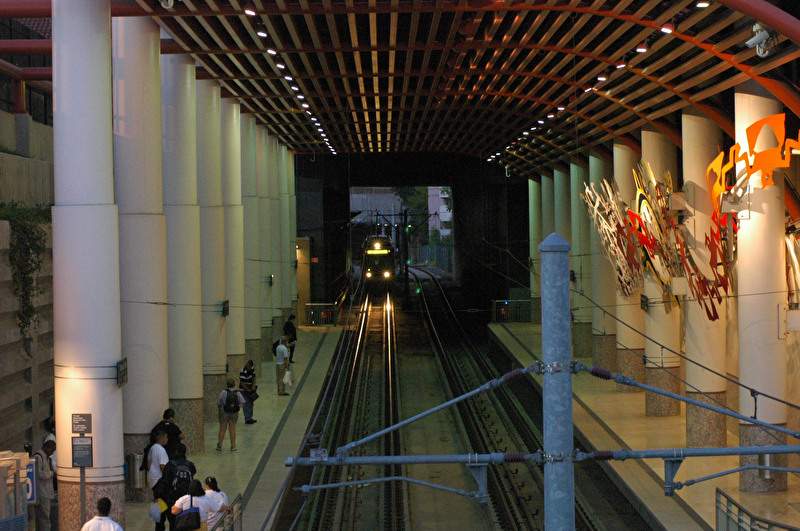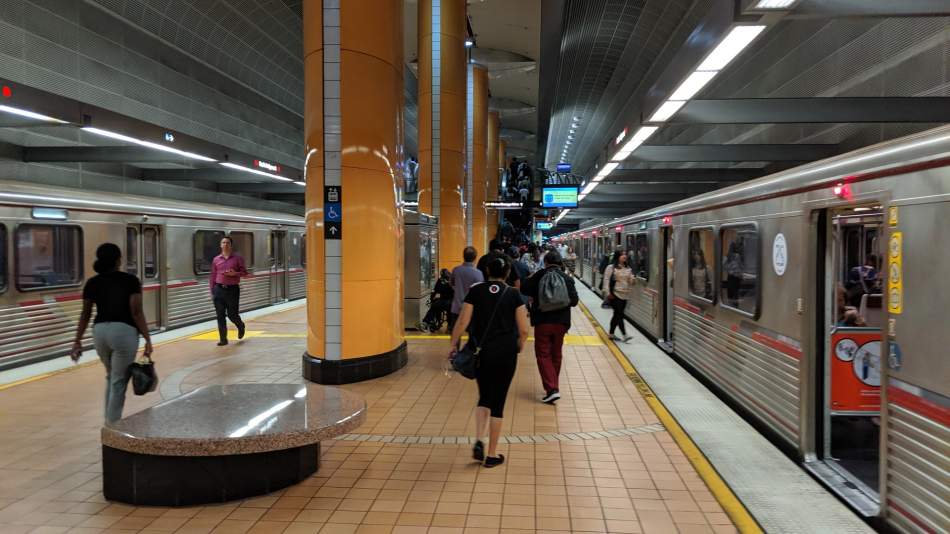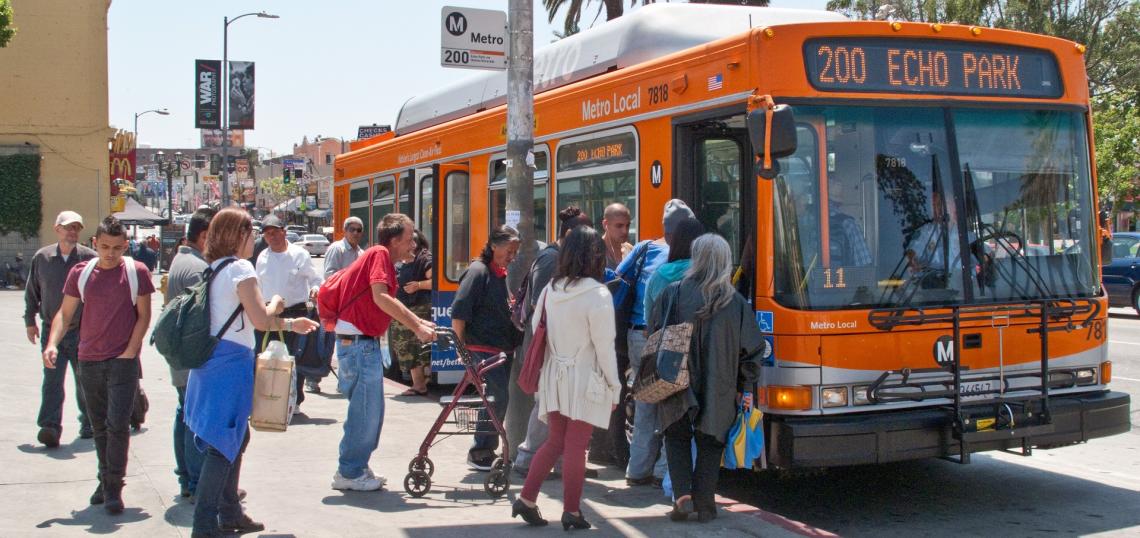Metro's fareless transit pilot program could launch as early as this August for K-12, the agency announced last week.
 Memorial Park Station in PasadenaWikimedia Commons
Memorial Park Station in PasadenaWikimedia Commons
That revised schedule, as detailed in a post on The Source, would begin commence nearly one year earlier than the anticipated timeline presented to the Metro Board of Directors earlier this year. According to The Source, the accelerated schedule is possible due to the expectation that bus service will return to pre-pandemic frequencies by September, creating additional capacity to students to ride safely.
The remaining component of the pilot, which would expand fare-free bus and rail service to low-income riders earning less than $39,450 per year, is not anticipated to launch until January 2022. The two target groups encompass more than 136,000 passengers.
Both components of the pilot are expected to conclude on June 30, 2023.
The fareless system initiative, according to a staff presentation, could save Metro passengers $1,200 each annually. That would represent a substantial discount for the agency's core constituency, 70 percent of whom are estimated to have an annual income of less than $35,000.
 North Hollywood Station passenger platformWikimedia Commons
North Hollywood Station passenger platformWikimedia Commons
The pilot program, when enacted, will be limited to Metro's buses and rail services. Municipal operators - such as Santa Monica's Big Blue Bus and Culver City Bus - will not be included, nor would Metrolink's commuter rail network, Metro bike share, and Metro's micro transit program.
The anticipated cost of the 18-month pilot program is $213 million, a price tag that could be partially offset by cutting other costs. Likewise, Metro staff expect that eliminating fares could offer long-term savings of more than $74 million by removing the costs associated with fare collection.
- Fareless System Initiative (Urbanize LA)






